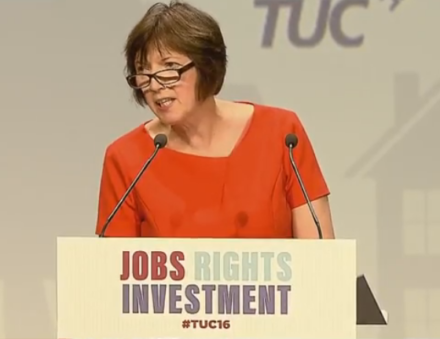
It was recently suggested that the Labour Party should sever its ties to the trade union movement. This is daft. The Labour Party was created by the trade union movement. In power we need to govern for the whole country, but to remain true to our roots and work for social justice we need to pay particular attention to the needs of union members and other working people. This doesn’t mean unions should dictate Labour policy, but it does mean that we should take time to listen to their perspective and have an answer when they suggest that Labour policy could harm, rather than help, union members.
It therefore matters that the TUC is firmly behind staying in the single market, arguing that leaving would be a disaster for jobs, wages and workers’ rights. This isn’t a dogmatic, ideological decision made by people unwilling to hear both sides of the argument, but the result of a real examination of the results of leaving for the British economy, given more credence by the government’s own economic assessments.
The TUC set five tests for any Brexit deal that must be met to protect working people. These include trading with the rest of Europe “so that businesses do not pull out of the UK, and continue to invest here in the creation of high quality jobs”, protecting the Good Friday Agreement and ensuring that British workers benefit from new increases in European social rights.
The government remains committed to leaving the single market and customs union. The Labour Party has recently take the welcome step of committing to a customs union, but is still undecided on membership of the single market, despite the evidence of the harm leaving would cause to businesses and workers.
There are no realistic suggestions of a trading relationship with the EU that could replicate the benefits of full single market membership, or even come close. As the TUC’s Frances O’Grady said: “Membership of the EEA would mean we can leave the EU but keep the benefits of the single market. It’s still the only current option we see that passes the tests for working people. Time is running out, and ministers have not yet put forward a realistic alternative.”
There are those who argue that staying in the single market would be hard for Labour MPs to justify, but this ignores the fact that the referendum was at the time explicitly about the political programme, not trade and economic integration. During the referendum campaign, many Leavers stated repeatedly that leaving the customs union and single market weren’t on the table – they famously wanted to be part of the economic union but not the political one. Once the referendum was won they saw their chance to funnel us in to their low tax, low regulation dystopia; in all likelihood eroding workers’ rights and environmental protections. There’s nothing left wing about leaving the single market – quite the opposite. Continued membership of the single market – more accurately called a social market – would protect us from a dangerous low regulation future.
A belief in democracy and the fact that single market membership was not part of the referendum question should have us fighting to protect our membership. Just as important, in the Labour Party a belief in the right of working people in Britain to have access to secure, safe and regulated employment should make this an easy choice. Yes, if we choose to stay in the single market Labour MPs will face questions on the Today programme, Question Time and from their constituents. However, these are questions that can be answered by appealing to the very core of what it means to be Labour – wanting to live in a country where the needs and rights of working people are a real priority.
Brexit is not important for its own sake. It is important because of its potential consequences for all working people and families in the UK. The Tories are making a complete mess of it – it’s up to us to put people’s security and future’s first, showing our readiness for government in the process. If Brexit is to go ahead it should be done in the way least likely to damage people’s livelihoods – though the two per cent loss of national income in the government’s own impact report, and potential impact on national security, should rightly make us question the validity of the whole project.
At this point in the debate, making clear that workers’ rights and jobs are not negotiable and backing single market membership to prove it should be Labour’s clearly stated policy. There would likely be an electoral benefit, but above all it’s the right thing to do for the people the Labour party was created to represent.
Nick Donovan is a member of Labour’s National Policy Forum. Mike Buckley is vice-chair (policy) of Labour’s Socialist Societies.




More from LabourList
‘Factionalism at the top is weakening Labour – and handing a gift to Reform’
‘Europe must stand strong on its own as US security guarantees grow conditional’
‘Tackling poverty should be the legacy of Keir Starmer’s government’